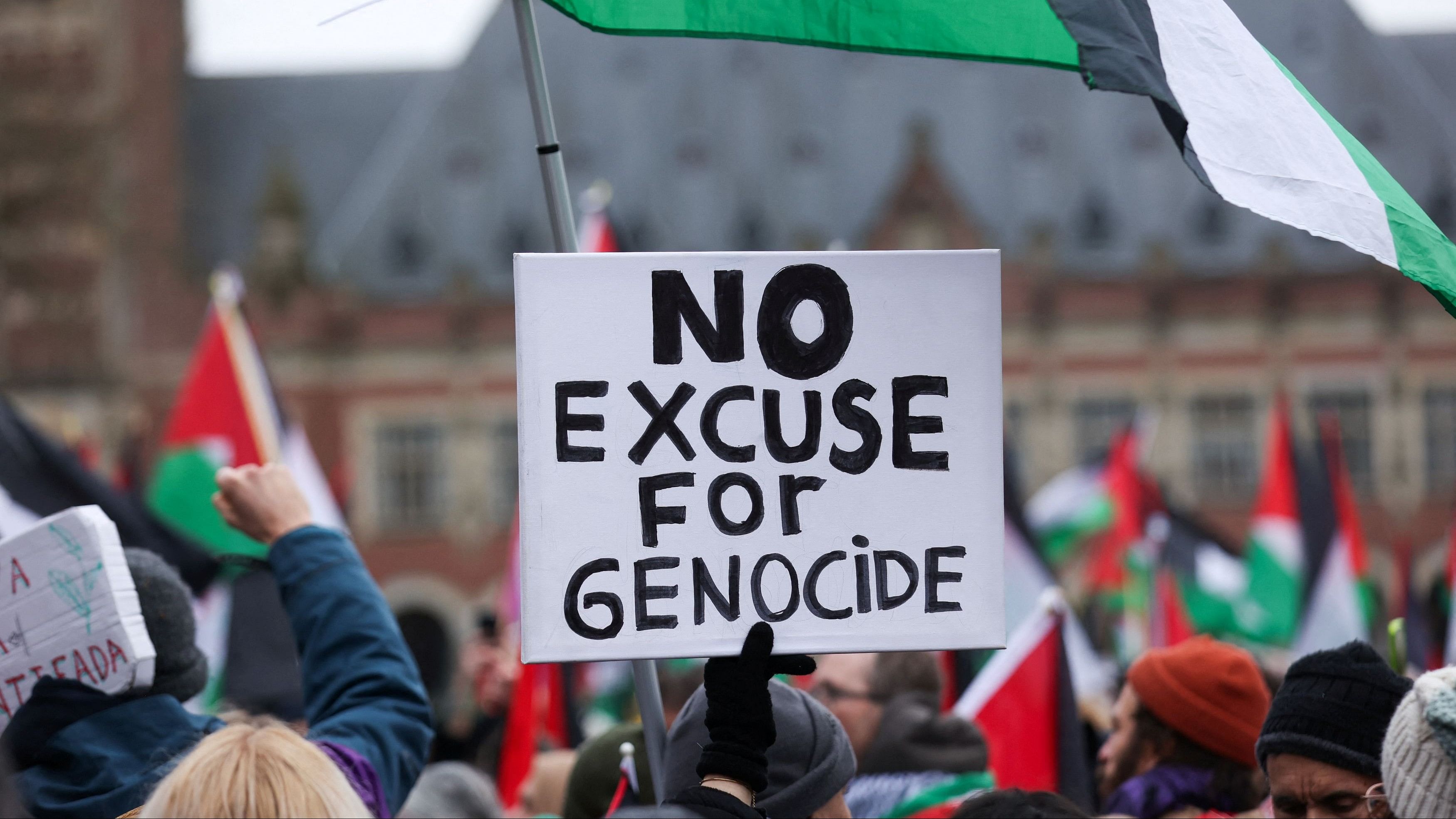
A photo showing protests near the ICJ in the Hague as Israel and South Africa face each other in the Gaza genocide case.
Credit: Reuters Photo
It is disappointing that the International Court of Justice stopped short of ordering Israel to call a ceasefire in Gaza. More so as the court said it accepts South Africa's contention that the “tens of thousands” of civilian casualties, the large-scale displacement, the destruction of civilian infrastructure including medical facilities and schools, the lack of access to food, water and other amenities, make a plausible case against Israel under the Genocide Convention. It also accepted that provisional orders were required urgently so that no further acts that fall under the description of genocide in the Convention are carried out against the Palestinians living in Gaza. In keeping with this, the court has passed provisional orders -- these will be operational while the allegation of genocide brought against Israel by South Africa is deliberated -- asking Israel to take all measures in its power to prevent and punish acts that are genocidal, and to ensure humanitarian measures in Gaza. Yet, inexplicably, the court did not go one logical step further to order a ceasefire though it is quite plainly necessary for the orders to be implemented.
The court may hope that the binding nature of the orders may force Israel to call a ceasefire. South Africa has hailed the verdict as a blow for international law. The Palestinian foreign ministry has welcomed the ruling and said it is now incumbent on the international community to ensure that it is not complicit in Israel's genocidal war in Gaza. Whether Israel's main backers, the US, UK and European nations, are prepared to end their moral, diplomatic and material support, is another matter. The ball is in the US' court, but can President Joe Biden read Israel the riot act in this year of a presidential election? Further, Israel has demonstrated that it is prepared to defy the world. It has defied ICJ rulings earlier. And other than agreeing to a brief six-day pause in the bombardment in November last, Prime Minister Benjamin Netanyahu has been determined to not heed calls by the majority of member-states at the United Nations, and votes in the General Assembly, for a durable “humanitarian truce” and to begin negotiations for a diplomatic end to the war. Indeed, earlier this week, Netanyahu even openly rejected the two-state solution to the Palestinian question, after Biden's attempt to revive this formula that has lain dormant for years due to Israel's resistance to it. After the ICJ announced its interim ruling, Netanyahu rejected the accusation of genocide implicit in it, calling on “decent people everywhere” to reject it, and pledged to continue defending his country.
Much hope was riding on the ICJ to end this brutal war. This verdict, though, recalls that old quip: Operation successful, but patient dead.